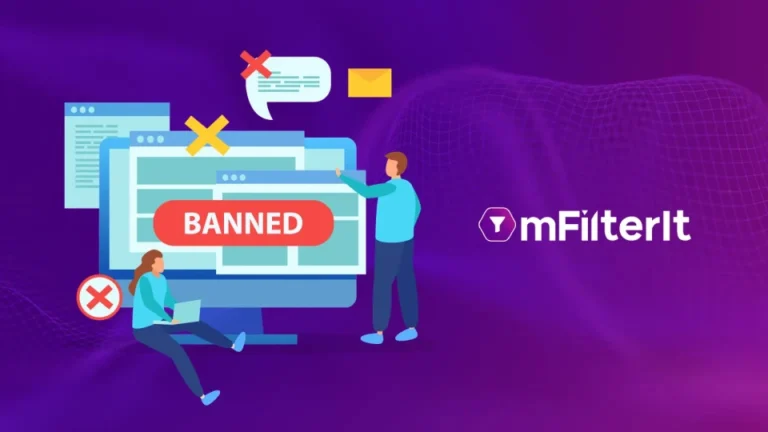Over 50 fake websites. 111 mobile numbers. 56 fraudulent bank accounts.
All linked to scams targeting devotees booking their Char Dham yatra online — and this is just one example.
As spiritual tourism surges in India, with millions relying on websites and apps to plan pilgrimages to destinations like Vaishno Devi, Maha Kumbh, and Char Dham, an old but evolved threat is growing – online brand impersonation.
What was once a simple, faith-led journey is now at risk of being derailed by cybercriminals who mimic trusted travel platforms. They create lookalike websites, fake payment links, and social media pages, tricking users into believing they are booking through legitimate services.
The Indian Cyber Crime Coordination Centre (I4C) has already issued public alerts urging religious tourists to stay vigilant. These scams don’t just harm the devotees — they damage the credibility of genuine platforms and erode user trust at scale.
This isn’t a future threat — it’s already here. And with every major pilgrimage season, the risks continue to grow.
Brand Safety Threats Happening in the Religious Tourism Sector
As digital touchpoints expand, so does the surface area for exploitation.
Fraudsters using fake websites and impersonating authentic brands have become one of the most dangerous threats in this space. They exploit the high emotion and urgency surrounding sacred travel to deploy a range of deceptive tactics:
- Phishing websites that mimic trusted travel and temple portals to get personal details and payments
- SEO-optimized fake domains that hijack search intent for popular queries like book Kedarnath pass, Vaishno Devi helicopter booking, or Char Dham registration, etc.
- Fake social media accounts impersonating official handles to sell fake tickets, VIP access, or spiritual services
- Fraudulent UPI links and QR codes shared via messaging apps or fake pages, redirecting donations or service payments to mule accounts
What makes these scams especially dangerous is how believable they appear. By using copied logos, cloned app designs, and emotionally persuasive language, impersonators blur the line between real and fake, leaving even cautious users vulnerable.
This is why brand impersonation in religious tourism must be addressed not just with cybersecurity, but with empathy, accountability, and active brand protection solutions.
Impact of these Digital Travel Scams on Pilgrims
Religious tourism is personal; it represents not just travel but hope, healing, and spiritual fulfillment. When that journey is derailed by deception, the consequences run far deeper than monetary loss.
These aren’t just unfortunate incidents. They carry a profound emotional toll:
- Elderly individuals and first-time travelers often fall prey due to lack of digital awareness and lose their savings
- Families find themselves stranded at religious sites, unable to redeem fake bookings
- Faith itself is shaken when sacred moments are ruined by online fraud or brand impersonation
How Does it Impact Businesses?
Victims who fall prey to online fraud often don’t blame the scammer; they blame the brand they thought they were engaging with. This leads to anger, confusion, and a growing distrust in the very platforms meant to make spiritual travel easier.
Here’s how real brands are made to pay the price for something that wasn’t their fault:
- Online reviews and brand perception take a hit, even when the business isn’t directly involved
- Organic traffic drops, as fraudulent domains intercept search queries meant for legitimate platforms
- Customer support costs increase, with teams overwhelmed by complaints and confusion
- Trust broken in this space is difficult to rebuild
Brand impersonation, in this context, is not merely a security issue. It’s a humanitarian concern. It undermines dignity, targets vulnerability, and disrupts sacred intentions. For businesses it stalls growth, erodes market confidence, and weakens brand equity over time.
How can Platforms solve Brand Impersonation Scams?
With the threat that directly impacts without any warning, travel brands must act decisively. Protecting pilgrims in the digital world is not just a technical challenge; it’s a moral responsibility.
Here’s what responsible, forward-thinking travel and religious tourism platforms must prioritize:
1. Proactive Digital Surveillance
- Monitor the digital ecosystem for lookalike domains, fake APKs, and SEO-optimized scam websites.
- Set event-based alerts during high-traffic seasons like Maha Kumbh and Amarnath Yatra, etc.
2. Sentiment-Based Fraud Detection
- Understand behavioral triggers driven by faith, urgency, and trust using AI-based solutions.
- Train fraud models to detect yatra-specific scams like VIP access, prasad bookings, and donation drives, etc.
3. Monitor Payment Gateways & UPI Trails
- Detect mule accounts and unauthorized UPI handles collecting funds for fake services.
- Track sudden spikes in suspicious transactions across digital wallets and UPI IDs.
4. Track Social Media Impersonation at Scale
- Scan platforms for fake pages and profiles promoting fraudulent offers or campaigns.
- Flag impersonators running paid ads with misleading links.
5. Strengthen Official Communication Channels
- Educate users to recognize verified domains and official handles.
- Proactively publish alerts, FAQs, and safe navigation guides for devotees.
6. Collaborate with Experts and Law Enforcement
- Partner with brand protection experts and integrate brand protection solutions like Sentinel+ by mFilterIt in your strategy.
- Share fraud insights with cybercrime agencies, CERT teams, registrars, and hosting providers.
7. Make Brand Protection a Core Business Function
- Treat brand safety as an essential part of your customer trust strategy, not just a reactive task.
- Integrate protection protocols across marketing, customer service, and tech infrastructure.
Success Story: How mFilterIt Ensured a Cybersafe Maha Kumbh 2025 with Brand Protection Solution

Maha Kumbh 2025, one of the world’s largest spiritual gatherings, drew millions of devotees to Prayagraj. As the event scaled digitally, it became a high-value target for cybercriminals exploiting trust, sentiment, and urgency.
Amid this, the challenges that emerged were:
- Fake domains impersonating official Maha Kumbh portals.
- Fraudulent services offer fake tent bookings, helicopter rides, and VIP access.
- Phishing campaigns are executed via fake social media accounts impersonating organizers.
- Scam donation drives leverage emotional messaging to divert funds.
- Counterfeit entry pass sales.
mFilterIt’s Multi-Layered Cybersecurity Approach
- Cyber Patrolling to continuously monitor digital platforms
- Fake/APK App Detection to identify unauthorized app clones
- UPI/Banking Fraud Detection to trace mule accounts and block fake payments
- Keyword & Domain Intelligence to track impersonation using event-specific terms
- Real-Time Monitoring to detect live threats across web and mobile
- Collaborative Takedowns with law enforcement and CERT-in for rapid response
Findings by mFilterIt during MahaKumbh
- Discovered and neutralized 225+ fake websites and mobile apps.
- Flagged and reported over 250 impersonator social media accounts.
- Supported 40+ FIRs through validated threat intelligence.
- Enabled 20+ arrests by sharing actionable data with enforcement agencies.
- Disrupted fake donation campaigns and VIP pass scams before mass impact.
- Took down multiple scam websites collecting payments via unverified UPI IDs.
- Dismantled domain networks targeting pilgrims with event-specific search terms.
Conclusion: Why This Matters
Online brand impersonation attacks are not just a cybersecurity concern; it’s a crisis that affects belief, emotion, and the digital evolution of spiritual services. Devotees deserve the same level of safety online as they expect at physical temples or yatra camps.
Likewise, travel brands deserve protection for the trust they’ve built over time. Brand impersonation attacks damage more than identity; they destroy consumer relationships, erode goodwill, and delay digital adoption in critical cultural spaces.
This is why we at mFilterIt are committed to offering not just protection, but prevention and transparency across platforms.
Brands must prioritize brand protection the same way they prioritize bookings, logistics, or customer support. Need help safeguarding your travel platform from brand impersonation attacks?
Talk to our experts today.



